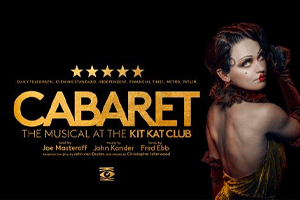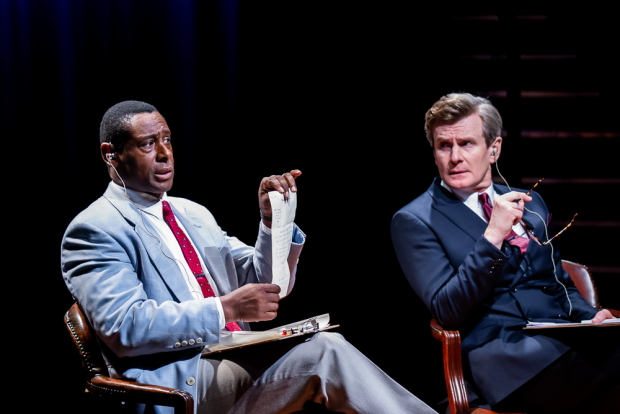
© Wasi Daniju
WhatsOnStage's Sarah Crompton has been on reviewing duty all year and, with the end in sight, she has now listed her top 12 productions in reverse chronological order.
Spring Awakening, Almeida
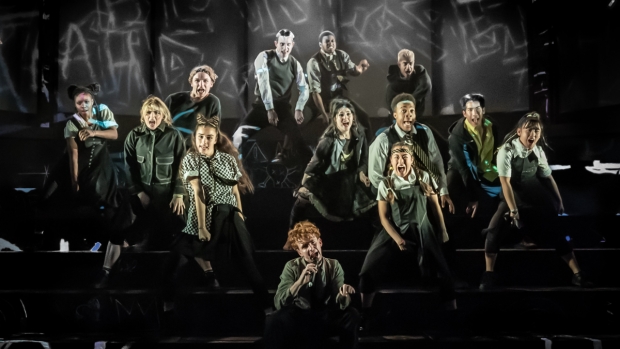
© Marc Brenner
Steven Sater and Duncan Sheik's rock musical is weighed down by the melodramatic intractability of its source material (a play written in 1891 by Frank Wedekind) but Rupert Goold's forceful production made a strong case for it to speak for the concerns of Generation X – and the way they are being suppressed by voices of authority today. He was helped by the extraordinary talents of his youthful cast, who having waited a year to perform, seem to burst the bounds of the stage with their energy, Laurie Kynaston and Amara Okereke particularly notable among them.
Anna X, Harold Pinter Theatre
Sonia Friedman's Re:Emerge season, offering young playwrights the opportunity to stage new work just as the pandemic first lifted its grip, felt like a good deed in a dirty world, and was consistently enjoyable. This play by Joseph Charlton, based on the story of the con artist Anna Sorokin, was probably the best of the bunch, not least for the way that it marked the West End debuts of its director (Daniel Raggett) and design team member (Mikaela Liakata) and its stars Emma Corrin and Nabhaan Rizwan. All staked a claim for glorious long-term careers – and their sheer vitality and invention made this a particularly fresh and memorable night.
curious, Soho Theatre
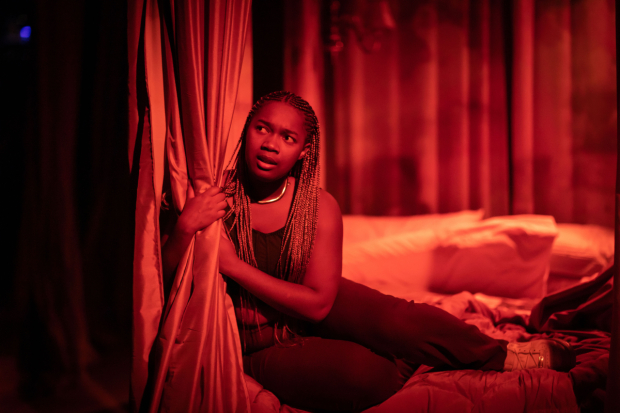
© Helen Maybanks
After her triumph with her debut play seven methods of killing kylie jenner, I couldn't wait to see what Jasmine Lee-Jones did next. This semi-autobiographical monologue confirmed her enormous talent and her interesting mind, taking us on a journey that attempted to find black faces in English theatre before Ira Aldridge in the 18th century. In doing so, she played brilliantly with the artifice of theatre itself, its ability to make us believe the impossible.
Romeo and Juliet, National Theatre/Sky Arts
When the National Theatre's starry staging of Romeo and Juliet was thwarted by Covid, they solved the problem by turning the whole stage area of the Lyttelton into a film set and the production into a movie. The result was an interesting hybrid, which preserved a theatrical feel while using closeup and jump cuts like a proper film. Simon Goodwin's intelligent direction, a smart adaptation by Emily Burns and a raft of sensational performances from a cast including Josh O'Connor, Jessie Buckley, Tamsin Greig and Fisayo Akinade made it a wonderful tribute to the power of imagination.
Carousel, Regent's Park Open Air
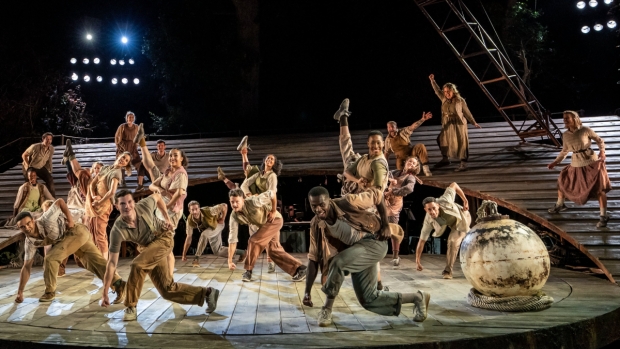
© Johan Persson
There have been some good, glitzy new musicals this year including Andrew Lloyd Webber's exuberant Cinderella and the sparkling, snow-filled riot that is Frozen. But I was fascinated by Timothy Sheader's revival of this troublesome Rodgers and Hammerstein classic which tackled its problems (most notably the glorification of a violent wife-beater) head on. Set in a Northern mining town, it was dark, difficult and sometimes rather bumpy. But I loved its bravery in finding a way of pulling the text and those great songs into a show that celebrates the tenacity and survival instincts of women.
The Wife of Willesden, The Kiln
There was something wonderfully life-enhancing about Zadie Smith's first play. It was less a creation and more a translation of Chaucer's The Wife of Bath's tale, but the transposition worked brilliantly, full of bawdy vitality, and beautifully served by a production from Indhu Rubasingham that set the whole thing inside Robert Jones's loving and welcoming recreation of the local Colin Campbell pub in the middle of a lock-in. Clare Perkins served up a raucous central performance as Alvita, making her live and breathe as a woman navigating the perils of the modern world. Great fun and one of the surprises of the year.
Hamlet, Young Vic
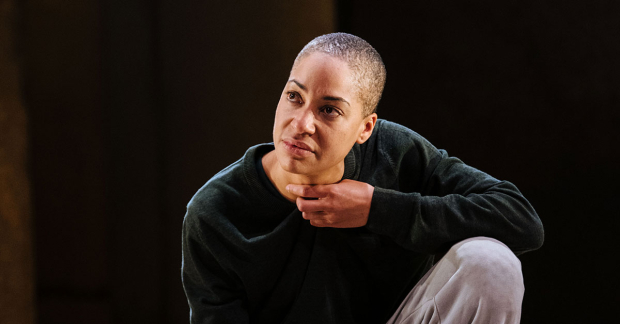
© Helen Murray
I didn't much like Greg Hersov's production of Hamlet. Although I admired its speed and its brevity, it seemed to have problems (rather like Sean Mathias's production starring Ian McKellen) deciding how it viewed the play. But there was no missing the sheer quality of Cush Jumbo's performance in the title role. She did a lot of extraordinary things with it – including ignoring the question of whether there was any doubt about her right as a black woman to take on the part – but what will stay with me for a long time was the directness of her communication with the audience.
White Noise, The Bridge
The Pulitzer-prize winning Suzan-Lori Parks described her scalding 2019 play as "ripping the face off of civilisation." It was certainly one of the most provocative and divisive productions of the year, taking a clever urban comedy and ripping it apart to reveal the racial and class tensions just beneath the surface of the relationships between four college friends. Certain scenes lingered in the memory long after you've left the theatre, and Parks' writing has a restless, questing quality that makes it simultaneously uncomfortable and unavoidable.
The Normal Heart, National Theatre
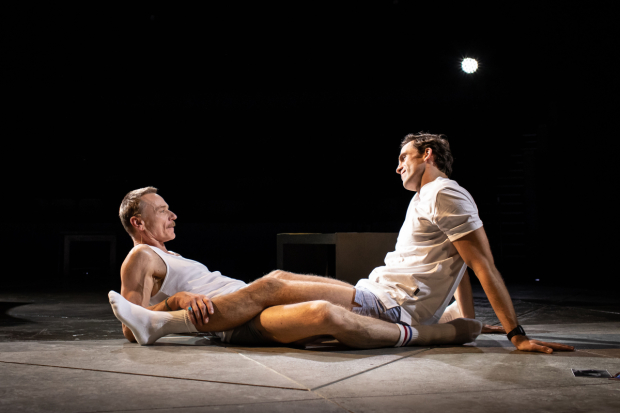
© Helen Maybanks
Opinions were divided about Dominic Cooke's revival of Larry Kramer's 1985 play about the rise of AIDS in New York, but I thought it was both immense and intensely moving. True, events have moved on since Kramer's report from the frontline of activism, but his play still has a power and honesty which makes it compelling. Cooke and his fine cast, led by Ben Daniels, were careful to make it as much about relationships, about the sheer human tragedy of the epidemic, as about politics. It seemed overwhelming relevant and a fierce reminder that we ignore human suffering at our peril.
Maryland, Royal Court
Lucy Kirkwood's 30-minute howl of anger and chilling protest may have been written in two days in response to the murder of Sabina Nessa and the rape and murder of Sarah Everard, but it had a power and a sense of necessity that many more considered pieces this year notably lacked. Its force and fury, creating its own Greek chorus of avenging goddesses, was widely heard in productions around the country. It felt like an important moment, an assertion of the importance of theatre in framing a response.
Cabaret, Kit Kat Club, Playhouse
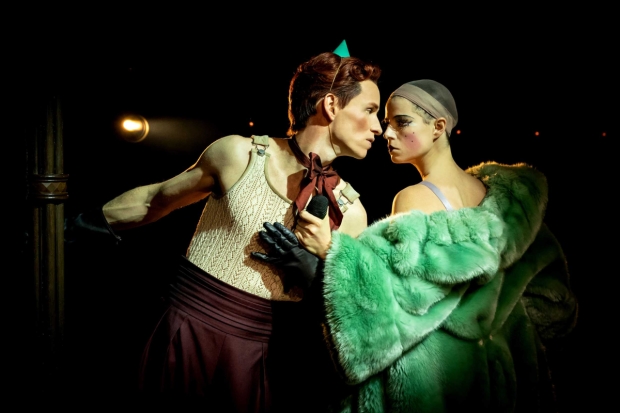
© Marc Brenner
It's all very well producing the most-anticipated (and most pricey) show of the year, but then you have to deliver, especially if, like director Rebecca Frecknall and designer Tom Scutt, you've been given the opportunity to remodel an entire theatre to express your vision. They pulled it off triumphantly, creating an immersive world that made the audience complicit in the events depicted in this great musical. Eddie Redmayne confirmed his charismatic, shape-shifting star status as the Emcee, but it was Jessie Buckley's (again!) searing performance as Sally Bowles that raised the entire evening to unforgettable.
Best of Enemies, Young Vic
James Graham's new play about the 1968 television debates between right-winger William F Buckley and leftist radical Gore Vidal, is an absolute theatrical firecracker. Graham has this special gift for grounding pieces in real events, but then propelling them somewhere different, holding a variety of views up to the light. Here he took a fairly obscure encounter and cast it as a key moment of change, one that helps us understand the times we live in now. A virtuosic production from Jeremy Herrin and insightful performances from Charles Edwards and David Harewood, sent me out of the theatre punching the air with pleasure.


